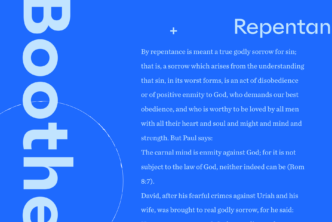Wondering how you can prepare for seminary?
Perhaps you are like I was . . . excited but nervous. I knew my classes would be rewarding but potentially challenging.
I entered seminary as a blank slate. I had never studied Hebrew or Greek, nor did I know what “exegesis” or “Gnosticism” was. I knew only a wee bit about church history. In retrospect, I wish I had explored some of the topics on my course list before starting—just to be better prepared.
Today when I scan the long list of Logos Mobile Ed courses, I see many that would have introduced me to some of those key subjects I knew nothing about.
Before you start seminary—or if you’re already in seminary and about to start up your fall classes—consider taking one of these courses (or see the exhaustive course list here) that aligns with classes many seminaries require of students to graduate.
Introducing Biblical Interpretation (5 hour course)
This course will introduce you to the art and science of biblical interpretation—and how being informed by the ancient biblical writers’ worldview, their historical circumstances, the cultural and religious beliefs of their day, literary genre, and the original languages of the Bible aids in interpreting the Bible correctly. Take this course, and you’ll be better equipped to comprehend the Bible’s message correctly.
Instructor: Michael S. Heiser
Learn more.
Introducing Church History I: Obscurity to Christendom (6 hour course)
Fuzzy about (or ignorant of) church history? Study the story of Christianity from the aftermath of Jesus’ crucifixion and resurrection to the fifteenth century. You’ll learn about the expansion and persecution of the early Church, the formation of key doctrines, the Great Schism of the fourteenth century, and early reform attempts that paved the way for the Protestant Reformation.
Instructor: Frank A. James III
Learn more.
Introducing Church History II: Reformation to Postmodernism (7 hour course)
Learn about the events of the Protestant Reformation and how it produced the contemporary Protestant Church. You’ll learn how to distinguish between Luther, the Swiss Reformers (including John Calvin, the “accidental reformer”), and the so-called Radical Reformers. When you finish, you’ll be able to articulate God’s activity throughout Church history—and how he is still working in the Church today.
Instructor: Frank A. James III
Learn more.
Interactive Hebrew Alphabet Course (1 hour course)
For serious study of the Old Testament, you need to be able to recognize the original words of the Hebrew Bible since they regularly appear in commentaries and lexicons. This one-hour course will teach you the Greek alphabet and show you how to pronounce whole words through game-type drills, an alphabet song, and quizzes—a fantastic foundation for recognizing Hebrew letters and words. Take this course, and you’ll be better prepared to tackle Hebrew in seminary.
Instructors: Randall Buth; Vincent M. Setterholm; Mark D. Futato
Learn more.
Interactive Greek Alphabet Course (1 hour course)
Another short but packed one-hour language course, Interactive Greek Alphabet will teach you the Greek alphabet and show you how to pronounce whole words so you’ll be one step ahead before diving into your seminary Greek class. Each lesson has an interactive activity section with various experiential exercises, such as game-type drills, an alphabet song, and quizzes. The course includes both Koine or Erasmian pronunciation to prepare you for whichever your school teaches.
Instructor: John Schwandt
Learn more.
Introducing Bible Translations (2 hour course)
Most students won’t take an entire class on Bible translations, and yet for any Bible student, understanding the differences is critical. In this course, you’ll learn the different types of translations, as well as the strengths and weaknesses of each. Bible translation expert Mark Strauss discusses language—like gender terminology, idioms, and metaphors—how languages can differ, and the limitations those differences place on translation.
Instructor: Mark L. Strauss
Learn more.
Or get the Bible Translations bundle.
***
See all Mobile Ed Courses and start to prepare for seminary today.






